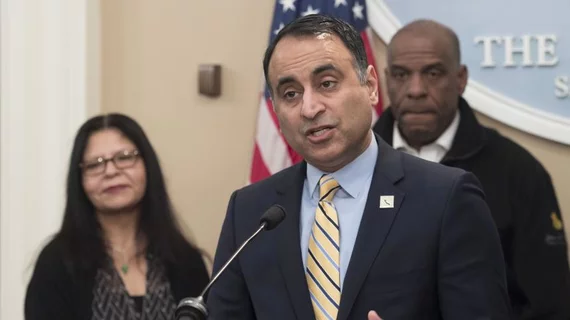California’s rate-setting bill shelved
A radical change to setting healthcare prices in California failed to make it out of a legislative committee, with its advocates promising to bring the proposal back next year as hospital and physician lobbyists claimed victory for defeating a bill it called an “unprecedented threat to patient access.”
The legislation, sponsored by California Assemblyman Ash Kalra, a Democrat from San Jose, would have created a state commission to set rates for many medical services currently covered by private insurers in the group and nongroup markets. This would’ve included everything from inpatient stays to office visits, with the Medicare rate acting as the floor for the private insurance prices.
From the beginning, it was opposed by the California Hospital Association, which claimed the bill “would take billions out of the state’s healthcare system” and “cripple patient access” to care.
“It ignores the actual drivers of health care costs, and its payment cuts would leave hospitals no choice but to lay off health care workers, reduce services, or, in many cases, close entirely,” the CHA said in its call to action for members.
CHA set up a form e-mail which opponents of the bill could use to write state legislators to urge them to vote against it.
In the end, it was shelved in the California Assembly’s appropriations committee. Kalra said he would draft a new version of the bill for next year’s legislative session with the support of the labor unions and consumer advocates which backed him this time around.
“This is the type of attention and investment we need to find a solution to the skyrocketing costs of healthcare,” Kalra said in a statement.
The California Medical Association’s president, Theodore Mazer, MD, also applauded the bill’s demise this year, saying legislators recognized “this deeply flawed legislation would result in enormous costs to the state and restricted access to care for millions.” The CHA struck a more conciliatory tone while cheering the defeat of the legislation.
“CHA recognizes that health care affordability will be an ongoing issue in the Legislature and will work to address it in a way that meets the needs of health care consumers while preserving hospitals’ capacity to deliver care in their communities,” the association said.
While the legislation was modeled after Maryland’s all-payer, global budgeting model—which has been shown to limit growth in hospital revenue and Medicare expenditures—the California bill would’ve gone further than any other state on setting healthcare rates.
Rising prices have been a major issue in California. A recent study from the University of California, Berkeley blamed much of the problem on the rapid pace of market consolidation in the state among hospitals and insurers.

